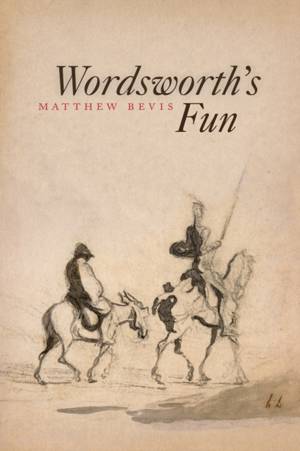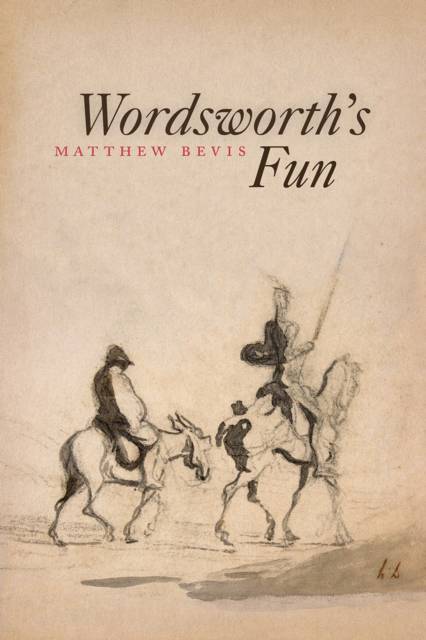
- Afhalen na 1 uur in een winkel met voorraad
- Gratis thuislevering in België vanaf € 30
- Ruim aanbod met 7 miljoen producten
- Afhalen na 1 uur in een winkel met voorraad
- Gratis thuislevering in België vanaf € 30
- Ruim aanbod met 7 miljoen producten
Zoeken
Omschrijving
"The next day Wordsworth arrived from Bristol at Coleridge's cottage," William Hazlitt recalled, "He answered in some degree to his friend's description of him, but was more quaint and Don Quixote- like . . . there was a convulsive inclination to laughter about the mouth." Hazlitt presents a Wordsworth who differs from the one we know--and, as Matthew Bevis argues in his radical new reading of the poet, this Wordsworth owed his quixotic creativity to a profound feeling for comedy. Wordsworth's Fun explores the writer's debts to the ludic and the ludicrous in classical tradition; his reworkings of Ariosto, Erasmus, and Cervantes; his engagement with forms of English poetic humor; and his love of comic prose. Combining close reading with cultural analysis, Bevis travels many untrodden ways, studying Wordsworth's interest in laughing gas, pantomime, the figure of the fool, and the value of play. Intrepid, immersive, and entertaining, Wordsworth's Fun sheds fresh light on how one poet's strange humor helped to shape modern literary experiment.
Specificaties
Betrokkenen
- Auteur(s):
- Uitgeverij:
Inhoud
- Aantal bladzijden:
- 264
- Taal:
- Engels
Eigenschappen
- Productcode (EAN):
- 9780226652191
- Verschijningsdatum:
- 20/08/2019
- Uitvoering:
- Paperback
- Formaat:
- Trade paperback (VS)
- Afmetingen:
- 152 mm x 226 mm
- Gewicht:
- 453 g

Alleen bij Standaard Boekhandel
+ 64 punten op je klantenkaart van Standaard Boekhandel
Beoordelingen
We publiceren alleen reviews die voldoen aan de voorwaarden voor reviews. Bekijk onze voorwaarden voor reviews.











